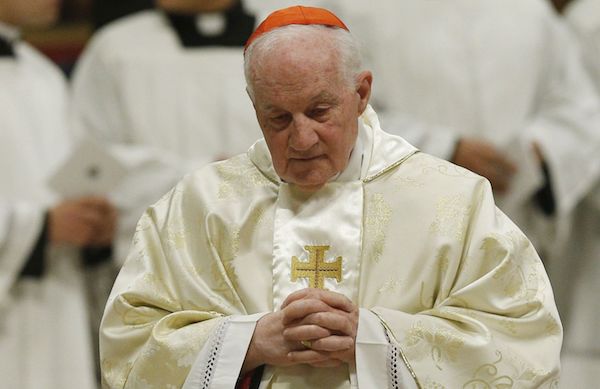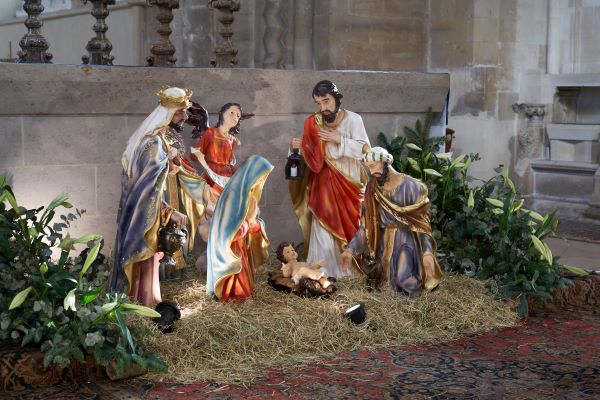The Catholic and Anglican archbishops in Wales have issued a joint Christmas message for the first time, inviting people to come to church.
The Archbishop of Cardiff, Mark O’Toole, joined the Anglican Archbishop of Wales, Andrew John, in a message published in both Welsh and English on 14 December. They recount the origins of the hymn “Silent Night” and promise “croeso cynnes” (a warm welcome) to visitors at Christmas.
The archbishops’ message reflects on the challenges and “moments of difficulty and despair” in 2022.
“People are still grappling with the effects of the coronavirus. Conflicts rage on in many countries across the world. Compounding this, the cost-of-living crisis is pushing many deeper into poverty as they struggle with day-to-day living costs. We mourned the loss of Her Majesty the Queen.”
They cite the circumstances of the first performance of “Silent Night” in 1818, when the organ on which the carol was to be played was found to be destroyed by mice. It was instead sung by Fr Joseph Muhr, who wrote the lyrics, and Franz Xavez Gruber, who composed the music, to the accompaniment of a guitar.
“An evening that began in disaster,” write the archbishops, “ended with a melody of peace.”
They compare this with the turmoil that attended the Nativity in Bethlehem: “An evening that began in fear, ended with the birth of Jesus, the Prince of Peace.”
This year there are, they say, “flickers of light in the darkness”, such as “continuing friendships that grew out of the pandemic”, the public honouring of “a selfless and dedicated Queen”, and the reception of refugees by churches, schools and communities.
“Here in Wales we want to be known especially as a place of sanctuary, a land of peace,” write the Archbishops. This was one of the themes of Archbishop O’Toole’s installation homily in June.
The two archbishops were installed in post two months apart – Archbishop O’Toole on 20 June this year, and Archbishop John on 30 April, having been elected to the position in December last year.
Archbishop John is also the Bishop of Bangor, a see to which he was elected in 2008. The post of Archbishop of Wales was created in 1920 when the Church in Wales was separated from the Church of England, and its incumbent is elected from the existing bishops in Wales and retains their diocesan see.
Archbishop O’Toole, the former Bishop of Plymouth, was put in charge of two of the Catholic dioceses in Wales in April, when he was made Archbishop of Cardiff and Bishop of Menevia, a separate diocese which he leads “in persona episcopi” (in the person of the bishop).
The results of the 2021 census published last month suggest challenging conditions for the Churches in Wales.
A higher proportion of respondents to the religion question said they had “no religion” than did so in England, the 46.5 per cent of the Welsh population who said so outnumbering the 43.6 per cent who described themselves as “Christian”.
In the 2011 census, 57.6 per cent of Welsh respondents said they were Christians.
Peter Collins, a priest of the Archdiocese of Cardiff who was ordained yesterday as the new Bishop of East Anglia, is the first Welsh-born member of the bishops’ conference of England and Wales since the retirement of Edwin Regan, the former Bishop of Wrexham, in 2012.
In his homily at the ordination Mass for the Gwent-raised Bishop Collins, Cardinal Vincent Nichols quoted the nineteenth-century bishop Bernard Ullathorne, who said that “there is nothing less desirable to flesh and blood than an English mitre – under any circumstances in this age”.



 Loading ...
Loading ...